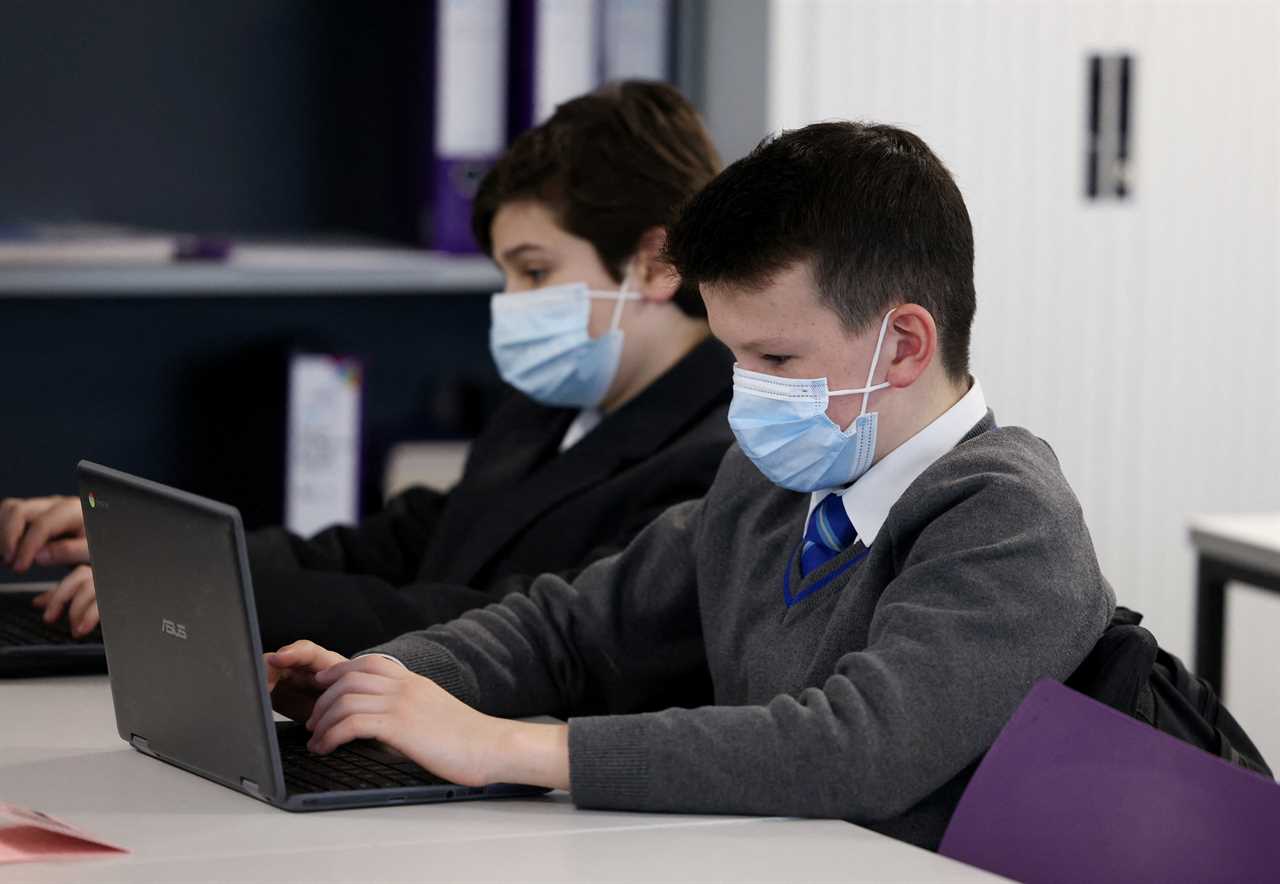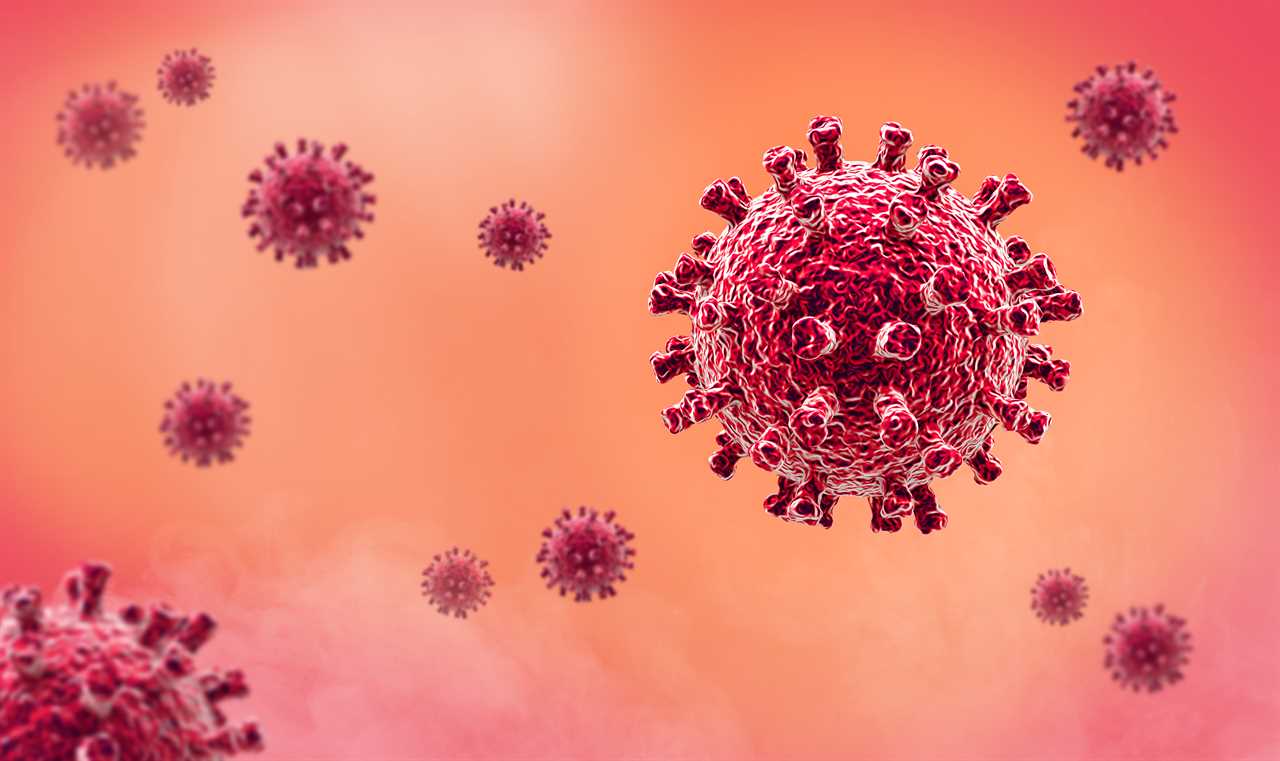THE most common sign you have Omicron right now has been revealed.
It means if you have noticed you suddenly have this particular symptoms – and you don’t have hay fever – it’s likely you’re infected.
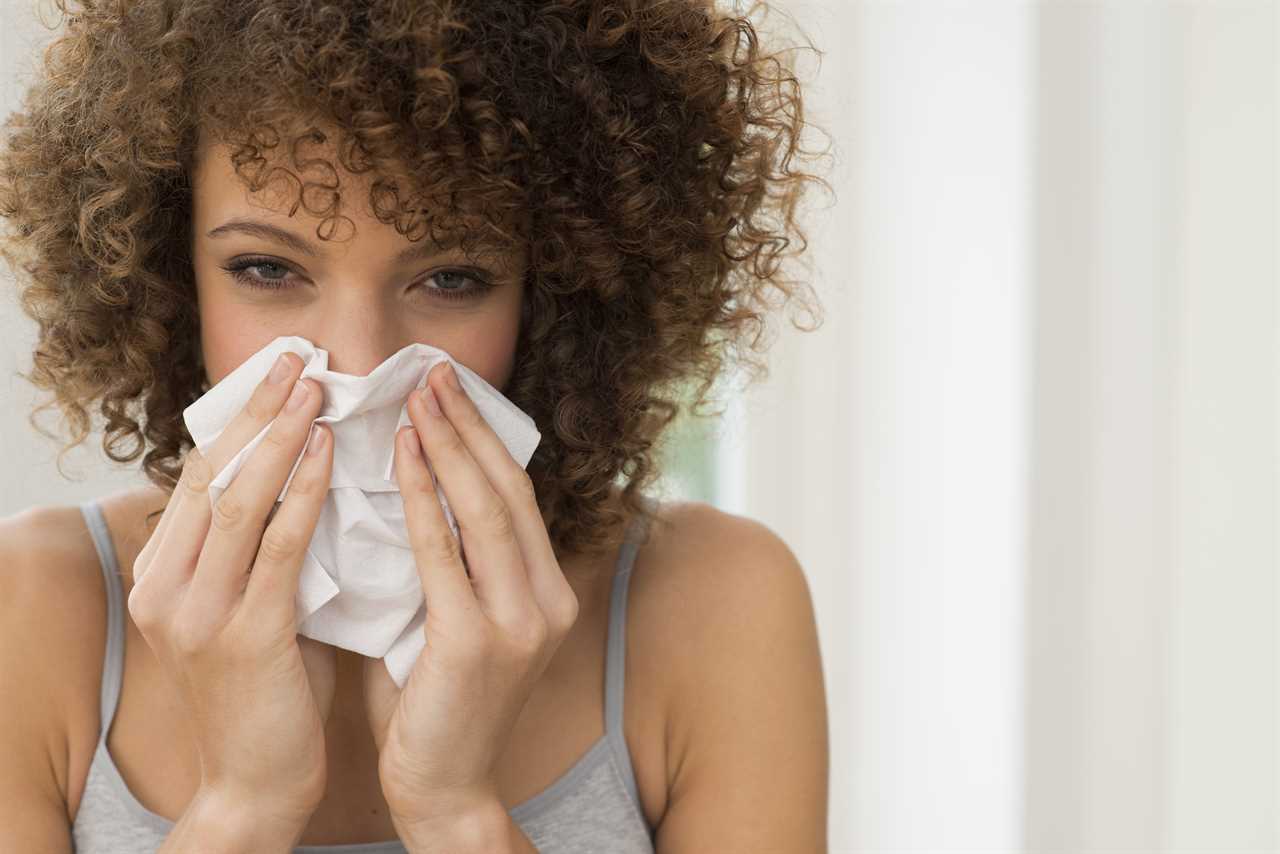
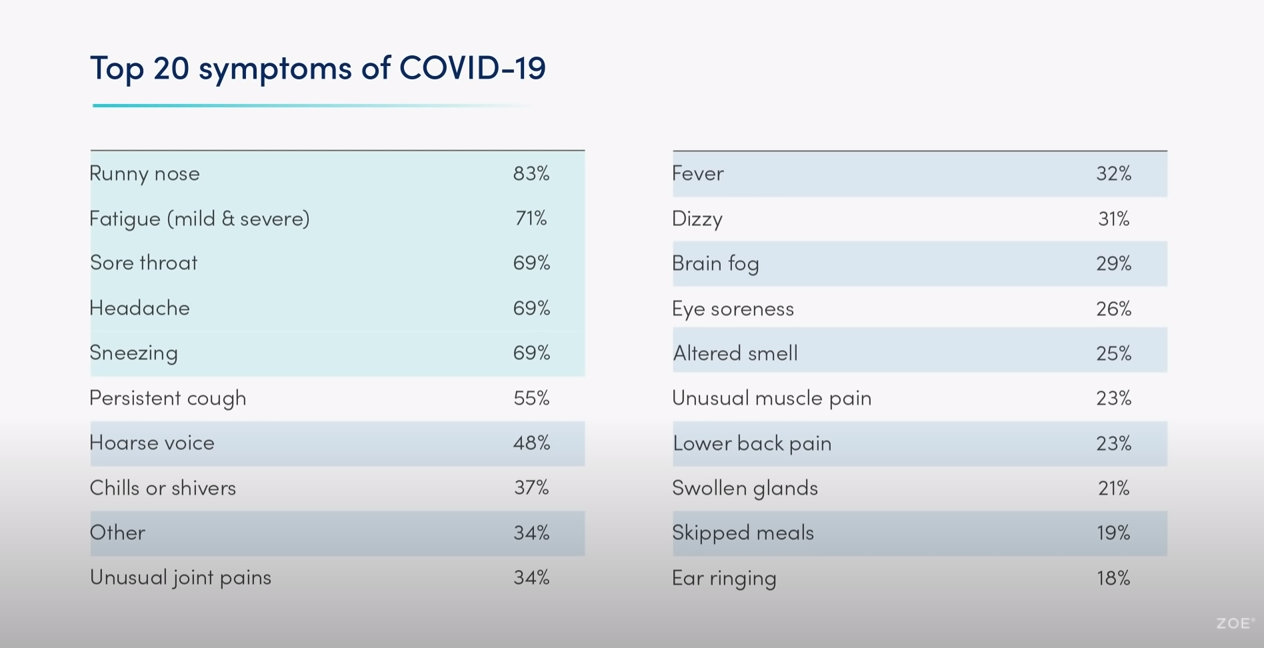
Professor Tim Spector, behind the ZOE Symptom Study App – where Brits log how they are feeling – shared the latest top 20 symptoms in the UK.
They include sneezing, headaches, muscle aches, eye pain and disrupted meals.
But he said the majority of people unwell with the bug right now report having a runny nose, making it the top symptom.
He said: “Runny nose seems to be creeping up. Every time I look it’s higher.
Read more on Covid
“83 per cent of people with Covid at the moment have a runny nose.”
Omicron is a milder strain and therefore produces milder symptoms in the majority of patients, especially in the vaccinated.
Most people will recover from it at home, resting up with flu or cold-like symptoms for a few days.
Some might only have one or two symptoms, but most people seem to have a runny nose.
Hay fever season has kicked off, with Brits facing a pollen bomb last week.
This means it’ll be even harder to know if your runny nose is hay fever or Covid, especially as free tests have been scrapped.
But from the latest ZOE figures – if you have a runny nose, it is quite likely you do have Omicron.
Covid is still very prevalent in the UK, but cases have fallen from the huge peaks of a few weeks ago when BA.2 – a subvariant of Omicron – took down thousands of Brits.
Prof Spector warned while cases are still high, patients in hospital look like they are no longer rising.
Infections rose to record highs in recent weeks, with one in 12 people in England battling the bug in March.
In the latest data the Office for National Statistics said around one in 14 are now infected in the country.
Prof Spector said: “Case numbers continue to decline and the rate is slightly faster than it was last week.”
WAVE FALLING
Dr Mary Ramsay, Director Public Health Programmes at the UK Health Security Agency, added: “It is encouraging that hospital admissions appear to have plateaued this week and we will continue to monitor this closely over the coming weeks.
“If you have any symptoms of a respiratory infection such as a high temperature try to stay at home or away from other people – especially those who are elderly or vulnerable.
“Vaccination remains essential for all eligible people, so if you’re not up to date, please make sure you get your latest jab.”
Vaccines are the best line of defence, health bosses say, with a new study showing symptoms in the triple jabbed last on average half as long as a common cold.
Spring boosters are being dished out for certain groups in society, to keep their immunity high.
Free tests have now ended for the majority of people in England, with Brits being asked to be responsible with any illness that pops up.
Only the vulnerable, including those in high-risk jobs and with health conditions, will be eligible to pick up swabs without paying.
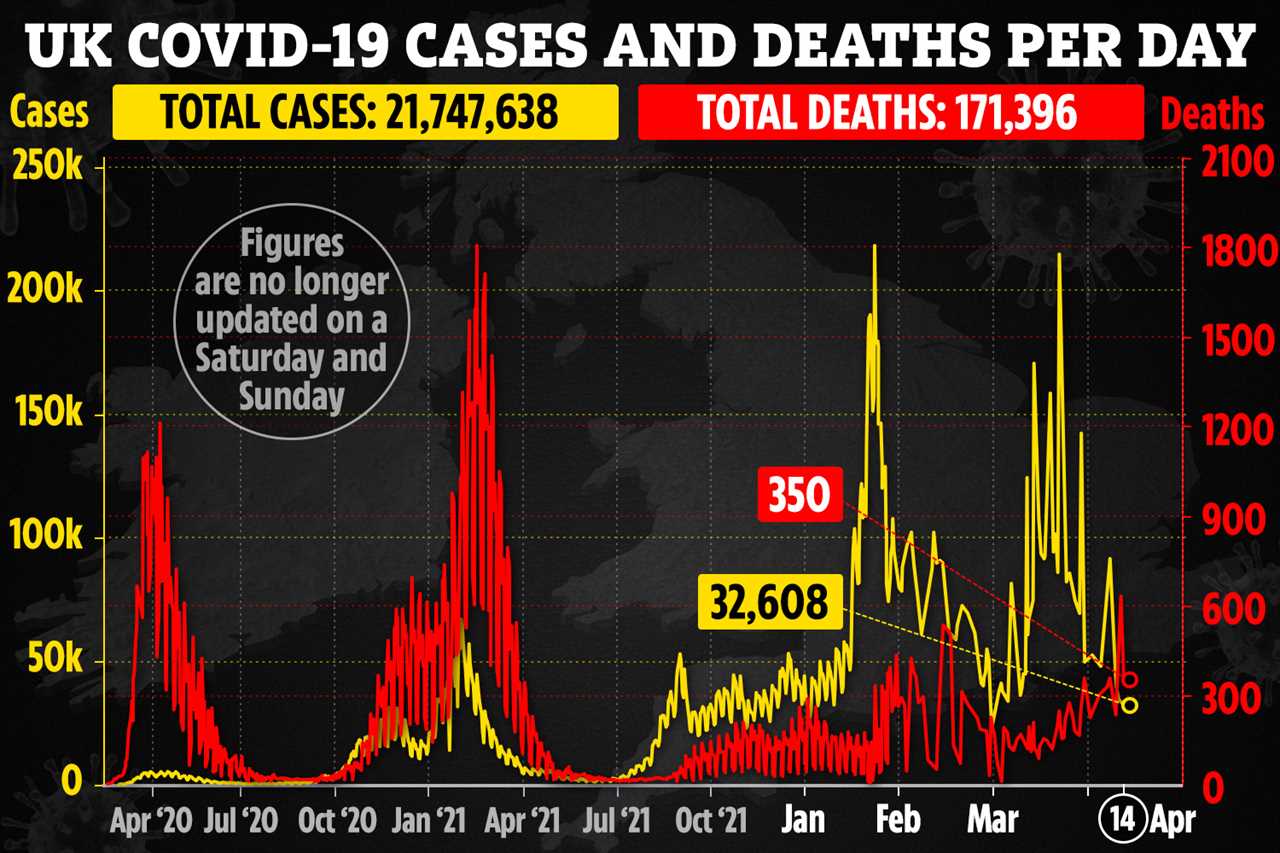
Everyone else in England now has to pay around £1 for a single swab or a tenner for a pack, to check if they have the virus.
Covid isolation rules have now changed, too. Confirmed cases are advised to stay at home for five days, when they are most infectious.
Children and young people who are ill and have a high temperature should stay at home and avoid contact with others if they can.
They can go back to school, college or childcare when they don’t have a fever and are well enough.
Anyone who has suspected or confirmed Covid or symptoms of a respiratory infection – cough, sneezing, stuffy/runny nose, sore throat, headache, muscle aches, temperature, feeling generally unwell – should stay at home.
From today under new government guidance they should try to avoid contact with other people until they feel well enough and don’t have a high temperature.
Anyone who has tested positive for Covid is now advised to stay at home and avoid contact with people for five days.
Read More on Trending In The News
Those needing to leave home will be told to avoid close contact with vulnerable people, wear a face mask and avoid crowded spaces, such as rush hour trains.
It is still important to let fresh air in when indoors, wearing face coverings in crowded or enclosed spaces and washing your hands, regardless of symptoms.

